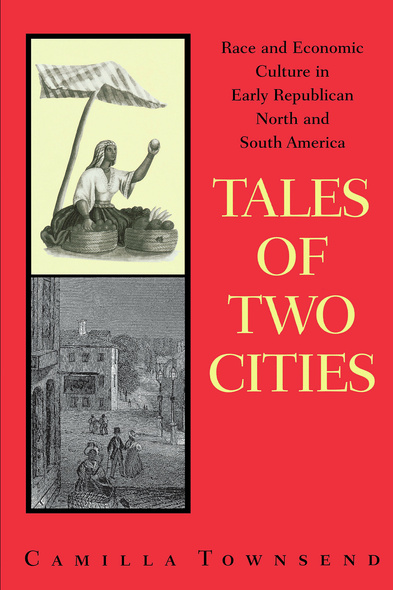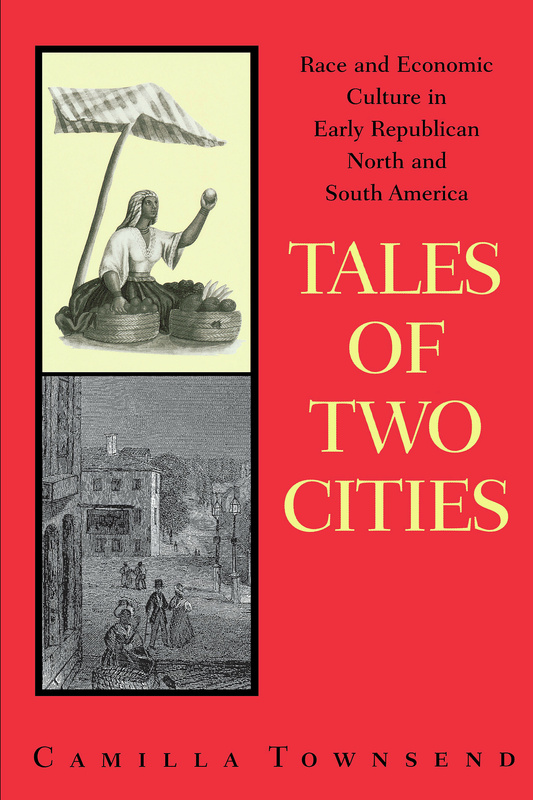Tales of Two Cities
Race and Economic Culture in Early Republican North and South America
With a common heritage as former colonies of Europe, why did the United States so outstrip Latin America in terms of economic development in the nineteenth century? In this innovative study, Camilla Townsend challenges the traditional view that North Americans succeeded because of better attitudes toward work—the Protestant work ethic—and argues instead that they prospered because of differences in attitudes towards workers that evolved in the colonial era.
Townsend builds her study around workers' lives in two very similar port cities in the 1820s and 1830s. Through the eyes of the young Frederick Douglass in Baltimore, Maryland, and an Indian woman named Ana Yagual in Guayaquil, Ecuador, she shows how differing attitudes towards race and class in North and South America affected local ways of doing business. This empirical research significantly clarifies the relationship between economic culture and racial identity and its long-term effects.
- List of Maps and Tables
- Acknowledgments
- Prologue: First Impressions
- Introduction
- Part 1
- 1. In the Streets of the Cities
- 2. Conquest and Colony
- Part II
- 3. A Merry Party and Serious Business: The Elite of Guayaquil
- 4. Strawberry Parties and Habits of Industry: The Elite of Baltimore
- Part III
- 5. The Quest of the "Personas Decentes": The Middling Ranks of Guayaquil
- 6. The Quest of the Contributing Citizens: The Middling Ranks of Baltimore
- Part IV
- 7. Working on Dead Man's Rock: The Poor of Guayaquil
- 8. "To Become The Unfortunate Tenants Of Your Almshouse": The Poor of Baltimore
- Conclusion
- Notes
- Bibliography
- Index






